- What We Do
- Agriculture and Food Security
- Democracy, Human Rights and Governance
- Economic Growth and Trade
- Education
- Environment and Global Climate Change
- Gender Equality and Women's Empowerment
- Global Health
- Humanitarian Assistance
- Transformation at USAID
- Water and Sanitation
- Working in Crises and Conflict
- U.S. Global Development Lab
Speeches Shim
When it comes to journeying to self-reliance, USAID and the Peace Corps have been in the business for a long time. Both founded in 1961, each organization partners with countries to empower citizens to master the skills needed to take on their own development challenges and improve the health and well-being of their communities.
The Small Project Assistance (SPA) Program is a collaboration between USAID and the Peace Corps that, with $44 million in grant funding, has leveraged over $34 million in local community and third-party contributions since 2000.
This USAID-Peace Corps partnership has supported more than 25,000 grants and nearly 3,000 technical training courses and has thus reached nearly 30 million people. Peace Corps volunteers help communities implement small, self-help activities which strengthen local community groups and impart key development skills.
In November, 2018, USAID and the Peace Corps celebrated 35 years of partnering together to support and implement SPA projects. The following 7 stories show how recent grants are having an impact on the health sector across the globe.
Photo Gallery
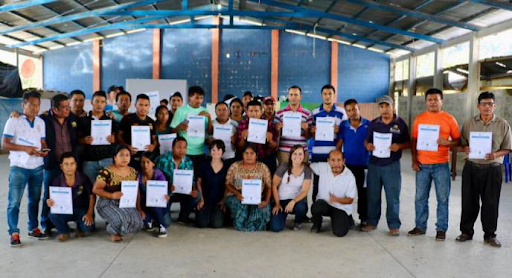
In Guatemala, a volunteer organized a workshop series to empower schools to address pressing health needs. 81 educators received training on nutrition, hygiene, and waste management. The local community contributed over 40% of the total project cost by donating items for the workshops, venue, and other supplies. Photo courtesy of the Peace Corps.
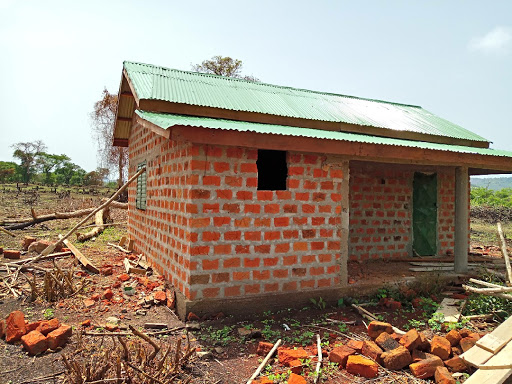
In Guinea, a volunteer worked to improve a community’s access to HIV/AIDs health professionals by enhancing a local health clinic. Improvements to the clinic’s latrines, as well as lodging for the doctors, reached 6,000 to 7,000 previously isolated and underserved individuals with care. The clinic delivers consistent health coverage but also provides screenings and treatment for transmissible diseases to vulnerable populations who previously did not have access to testing. Photo courtesy of the Peace Corps.
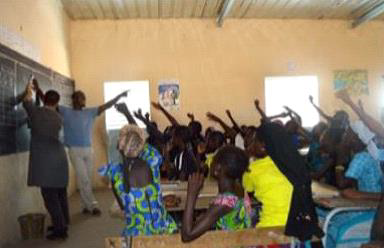
In Senegal, 25 volunteers and their community partners scaled up an elementary school malaria education initiative to the national level. The project provided accessible and entertaining content to elementary-age students on malaria prevention and treatment, including activities and games to reinforce concepts. Students were encouraged to visit their peers to check if they were using their mosquito nets and to educate their community about malaria prevention techniques. The curriculum was implemented in 21 schools across nine regions, reaching a total of 720 students. Photo courtesy of the Peace Corps.
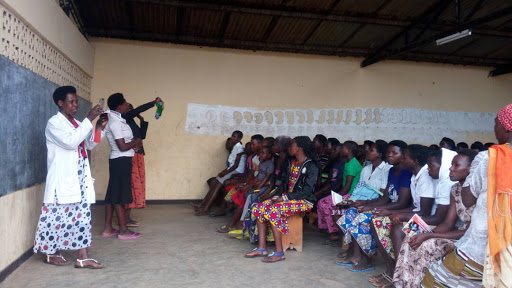
A volunteer in Rwanda worked with local health professionals to develop a “First 1,000 Days and Menstrual Health” toolkit. The resource aimed to increase knowledge and support for menstrual hygiene and healthy choices for mothers and their children. Trainings included a 12-day event for 321 women and girls and a girls day event for 300 girls and their parents, covering menstrual hygiene and nutrition. Photo courtesy of the Peace Corps.
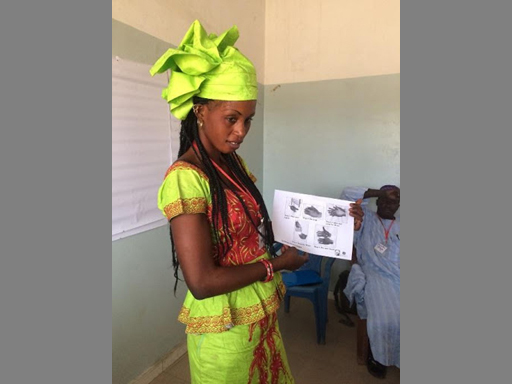
In Senegal, a volunteer helped implement a series of trainings for 22 health workers from 11 communities on outreach activities. The four-day trainings covered nutrition, breastfeeding, common childhood illnesses, hygiene, family planning, pre- and post-natal visits, and malaria prevention. The sessions examined participants’ role within the health system and encouraged healthcare workers to actively undertake initiatives in their communities. Photo courtesy of the Peace Corps.
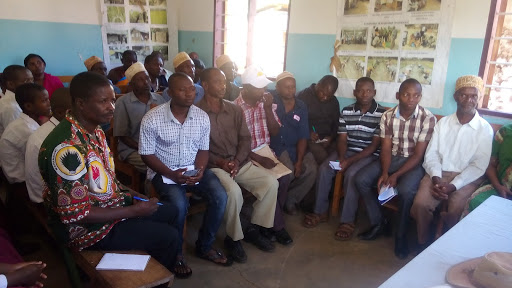
In Tanzania, a volunteer worked to tackle two challenges that many people living with HIV/AIDS face: poor nutrition and the lack of a steady source of income. For the project, volunteers held workshops about nutrition and dairy goat farming. Trainings on how to properly raise and care for goats were conducted by the Livestock and Agricultural Office and included constructing goat houses, disease control, feeding, and milking. Photo courtesy of the Peace Corps.
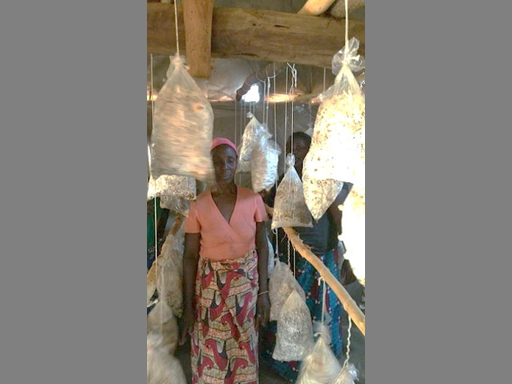
A volunteer in Zambia worked with a local women’s group to establish a garden to improve nutrition and help women build business skills. The garden, which consisted of mushrooms and strawberries, not only increased access to nutritious produce year-round, increasing food security, but also generated income for the women’s club. Profits from selling strawberry seeds enabled the women to start their own home gardens. Members of the women’s club have strengthened their business and financial skills through marketing and selling seeds, keeping financial records, and investing in new businesses. The project was so successful that local NGOs and neighboring villages come to the members to learn how to replicate. Photo courtesy of the Peace Corps.

Comment
Make a general inquiry or suggest an improvement.